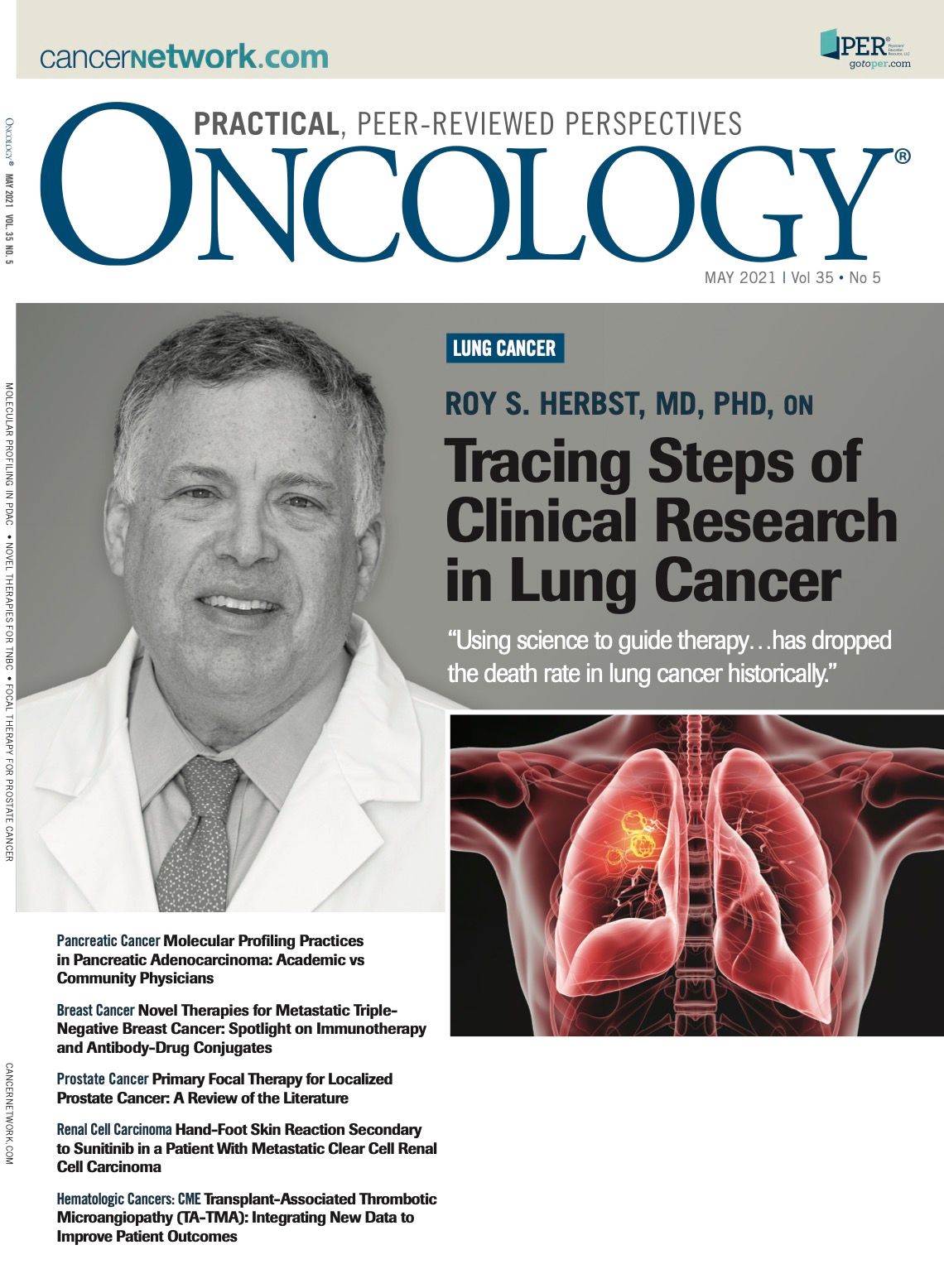Exploring Novel Mechanisms of Action–Then and Now
The success of systemic therapies in the treatment of hematologic and solid tumors has revolutionized oncology treatment, with multiple immunotherapy and targeted agents supplanting prior standard-of-care disease management practices. Advances in lung cancer are unrivaled by research in many diseases, making reflection on the last generation of breakthroughs critical in understanding how far the field has come.
“[T]he fact that we could take scientific discoveries…and [translate that to] targeted therapy and immunotherapy is fantastic,” Roy S. Herbst, MD, PhD, of Yale Cancer Center and Smilow Cancer Hospital, in New Haven, Connecticut, and cochair of the 22nd Annual International Lung Cancer Congress®, hosted by Physicians’ Education Resource®, LLC (PER®), said in an interview with ONCOLOGY®. “It speaks to how we are bridging the gap and helping people live longer with this disease. That’s what gets me up every morning: seeing the science translated to the patient.”
In the interview, Herbst takes a deep dive into his career as a lung cancer physician and the research he has conducted. He details the timelines of significant clinical research studies, such as pivotal trials that led to approvals of targeted agents against EGFR and have revolutionized approaches to treating advanced non–small cell lung cancer.
Also in this issue, the ONCOLOGY® editors debuted the first installment of Product Profile, aimed at discovering real-world implications of systemic therapies with new indications. This month, we spoke with Kathryn Maples, PharmD, BCOP, clinical pharmacy specialist of multiple myeloma at Winship Cancer Institute of Emory Healthcare in Atlanta, Georgia, about belantamab mafodotin (Blenrep). In a disease state that saw multiple FDA approvals and designations throughout the preceding year, belantamab mafodotin stood out as being the first B-cell maturation antigen–targeted agent for use in patients with myeloma, offering a new therapeutic mechanism of action in a population of patients who are often treated with multiple lines of therapy throughout the course of their disease.
Aiko Nagayama, MD, PhD, of Keio University School of Medicine in Tokyo, Japan, and her colleagues presented a comprehensive review of novel therapies for triple-negative breast cancer, which has traditionally been associated with poor outcomes as compared with other tumor subtypes. At the forefront, the authors discuss antibody-drug conjugates and immunotherapy agents that have recently been approved.
As always, the articles within these pages and more on breakthroughs in oncology across multidisciplinary specialties can be found at CancerNetwork.com, home of the journal ONCOLOGY®.

Late Hepatic Recurrence From Granulosa Cell Tumor: A Case Report
Granulosa cell tumors exhibit late recurrence and rare hepatic metastasis, emphasizing the need for lifelong surveillance in affected patients.